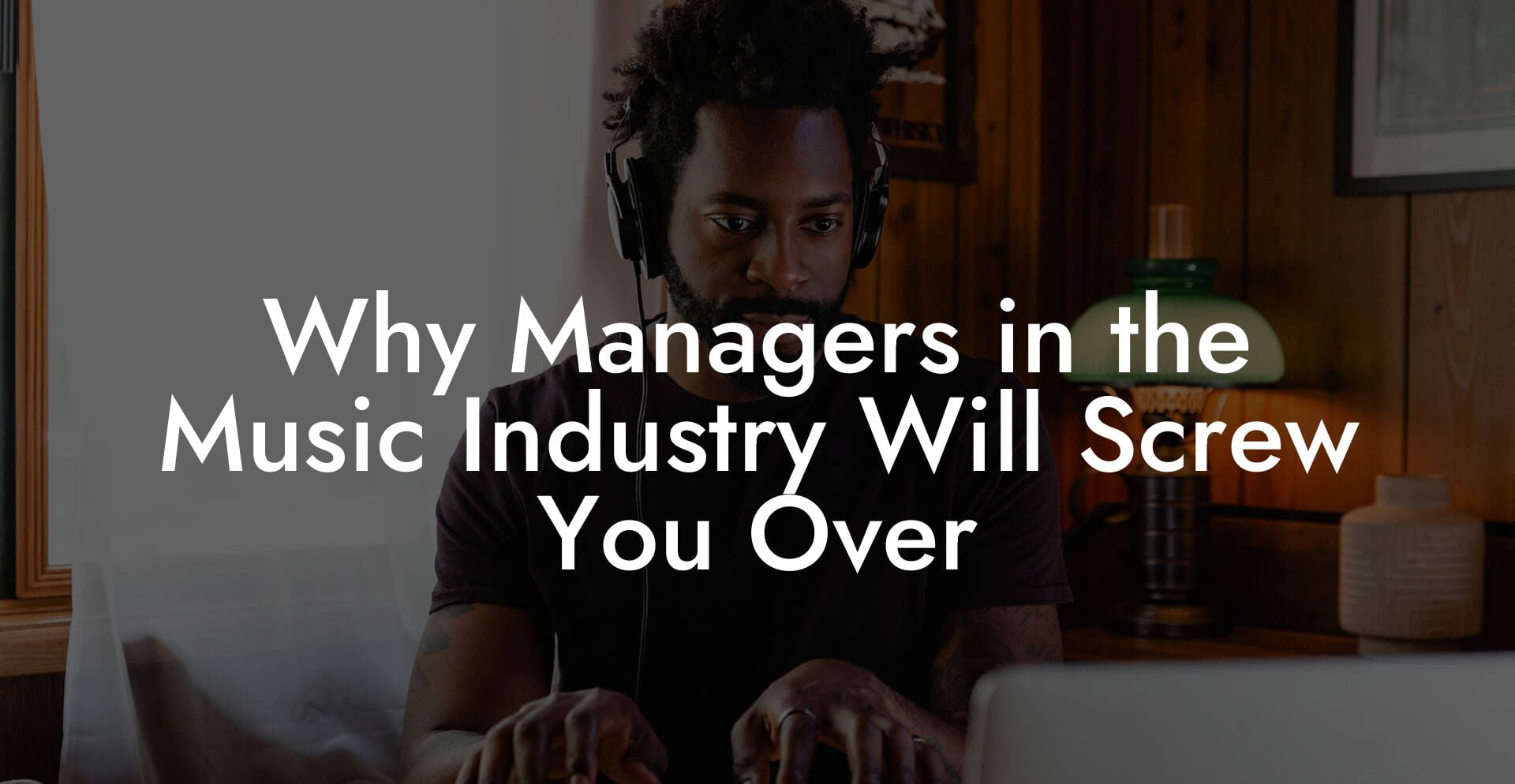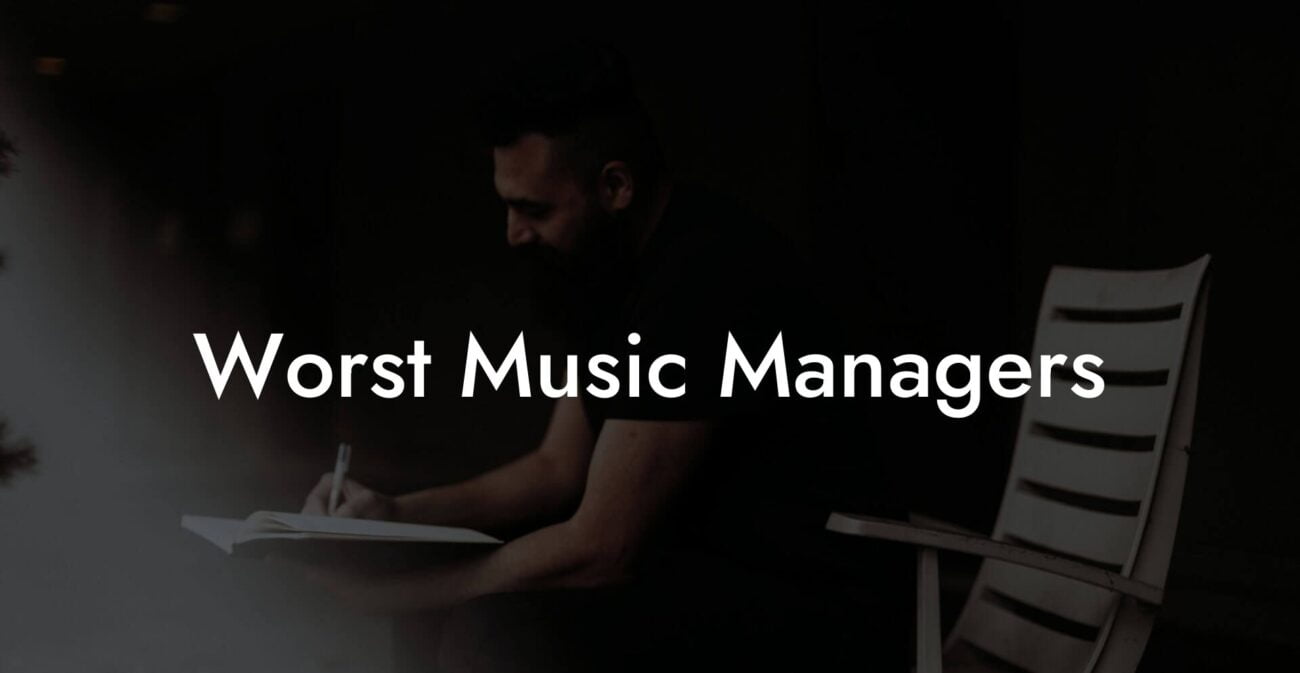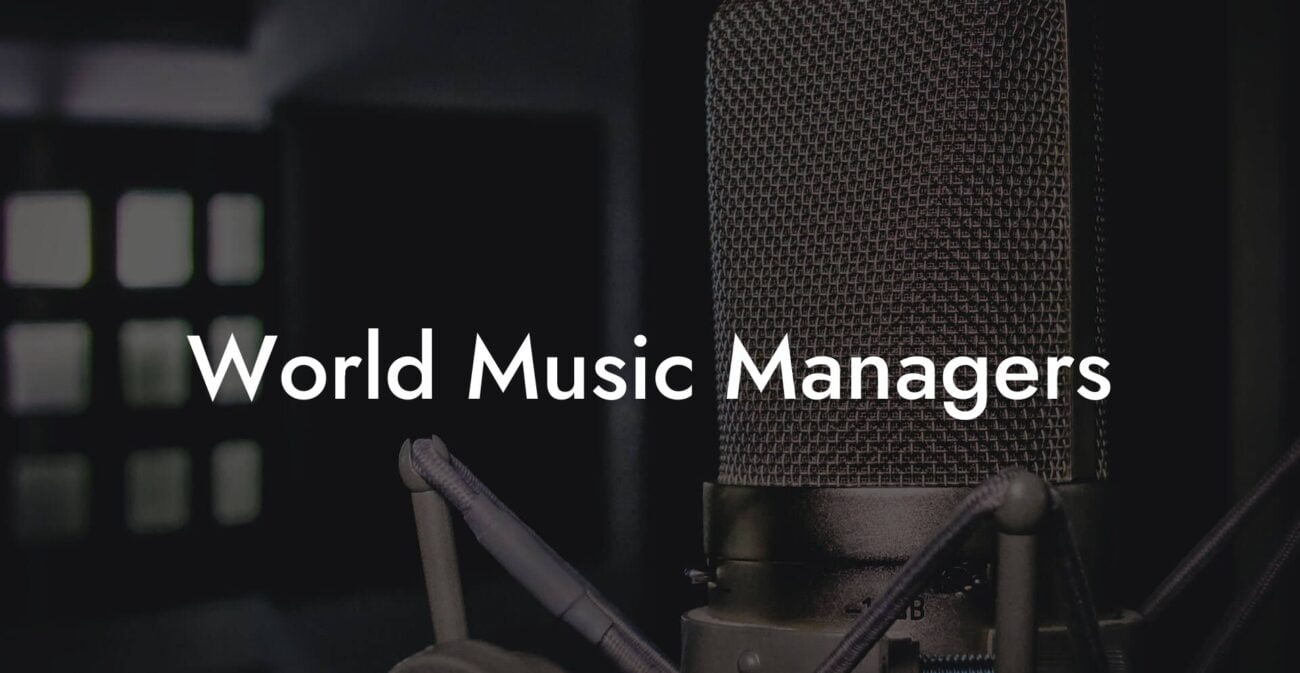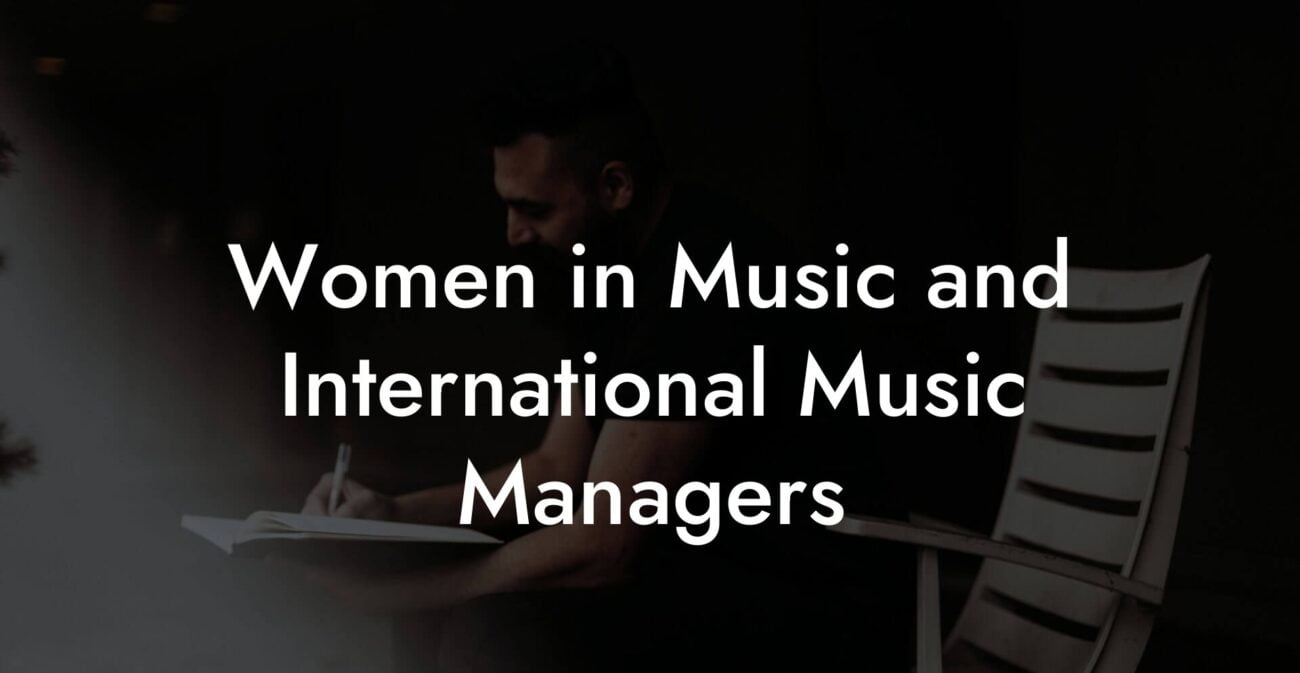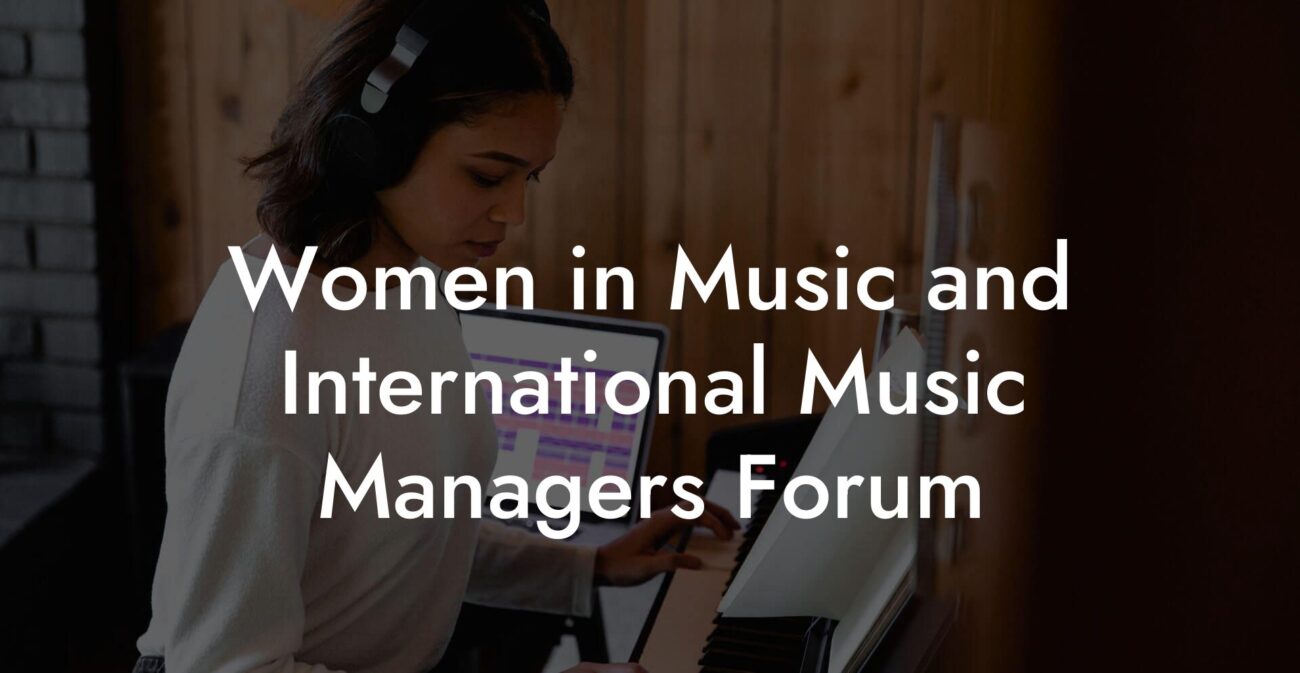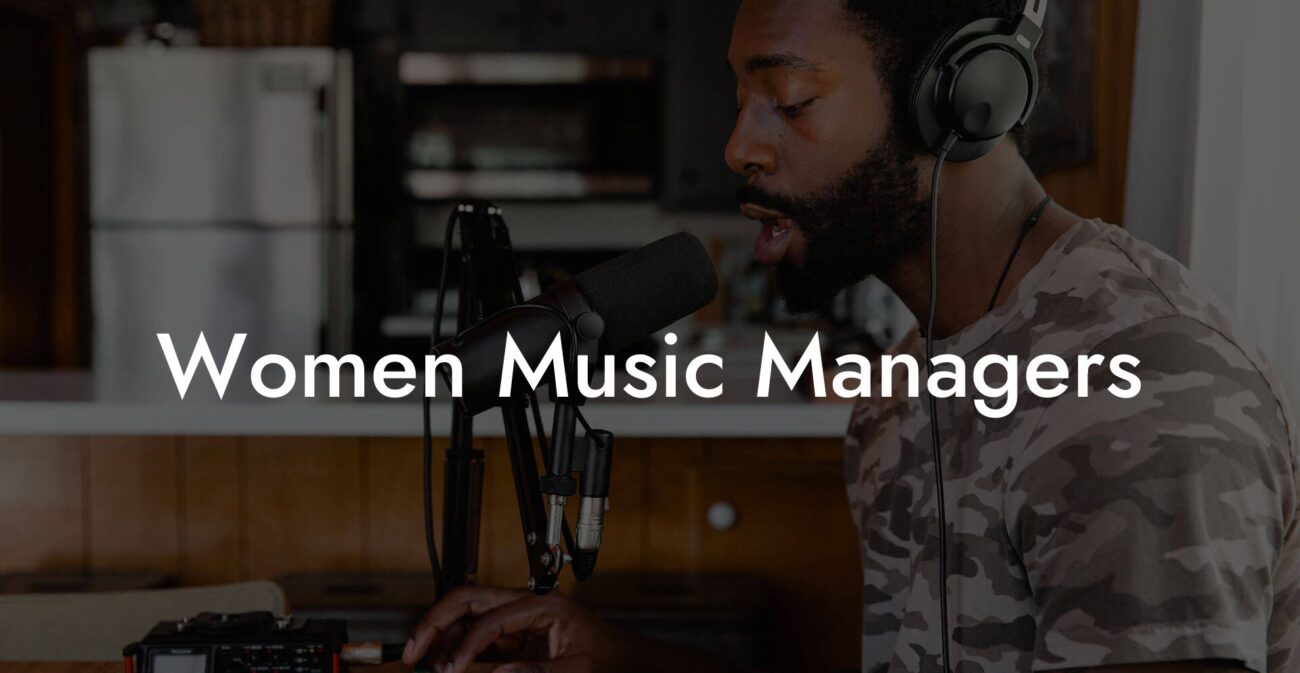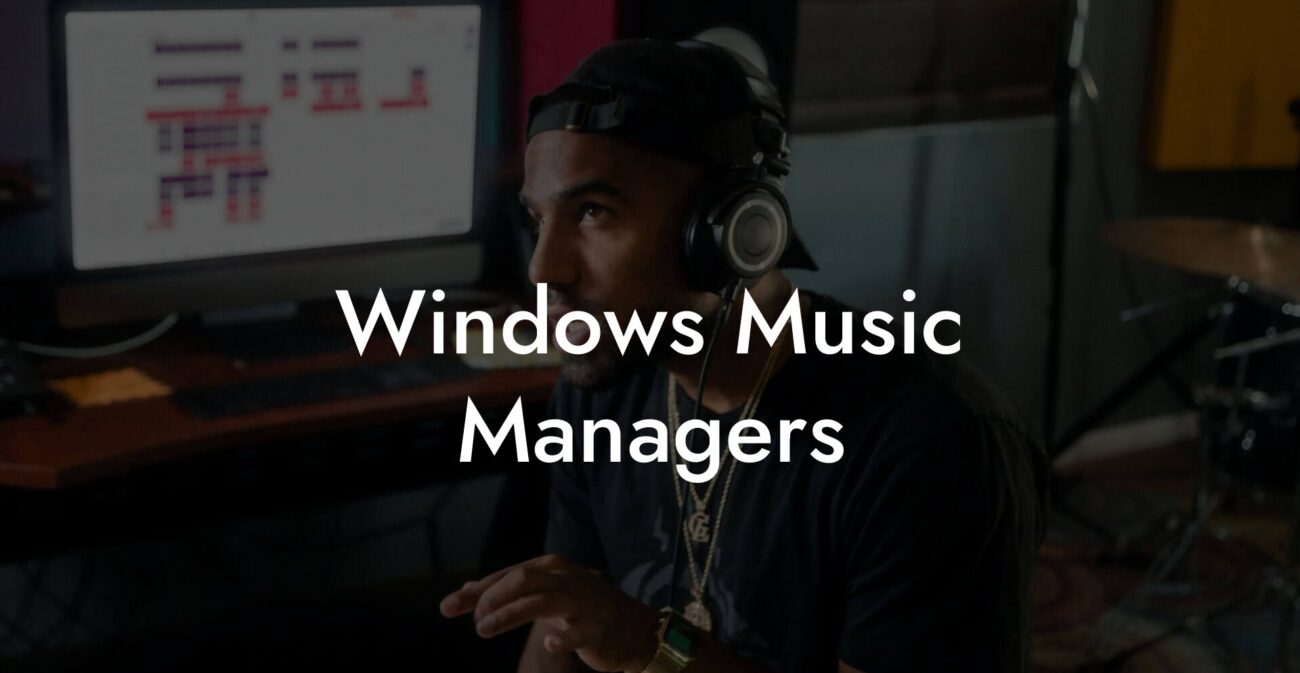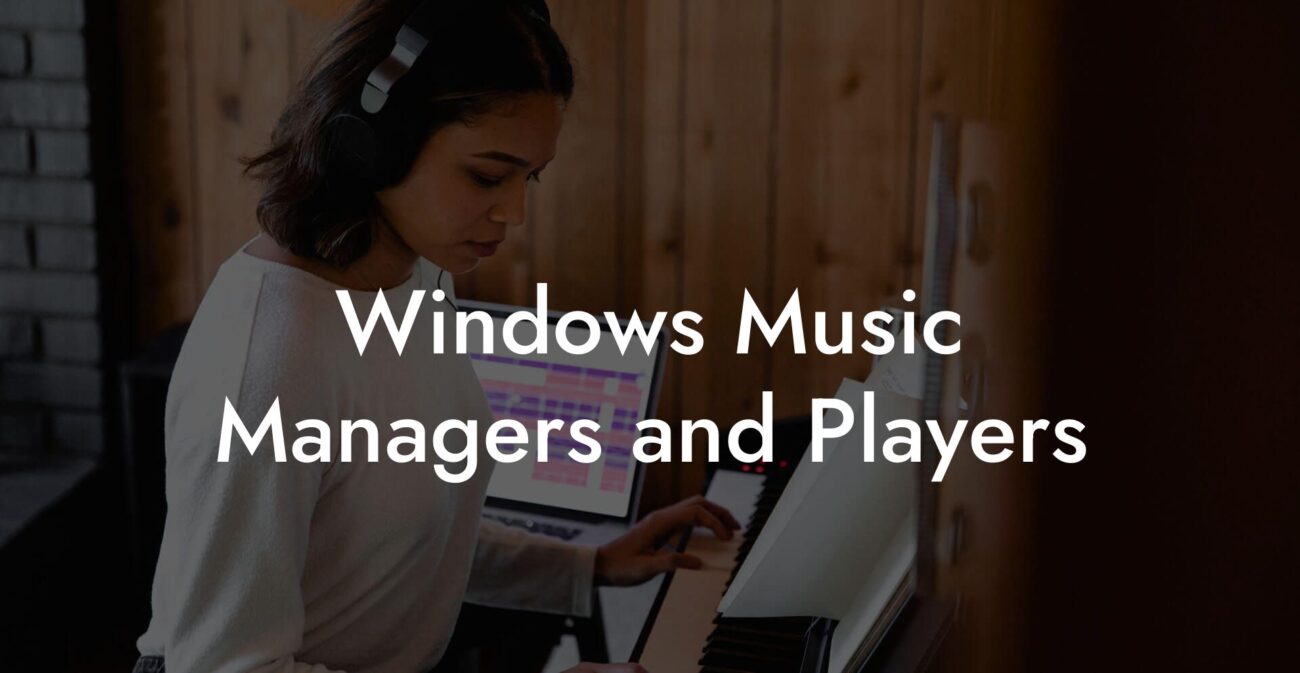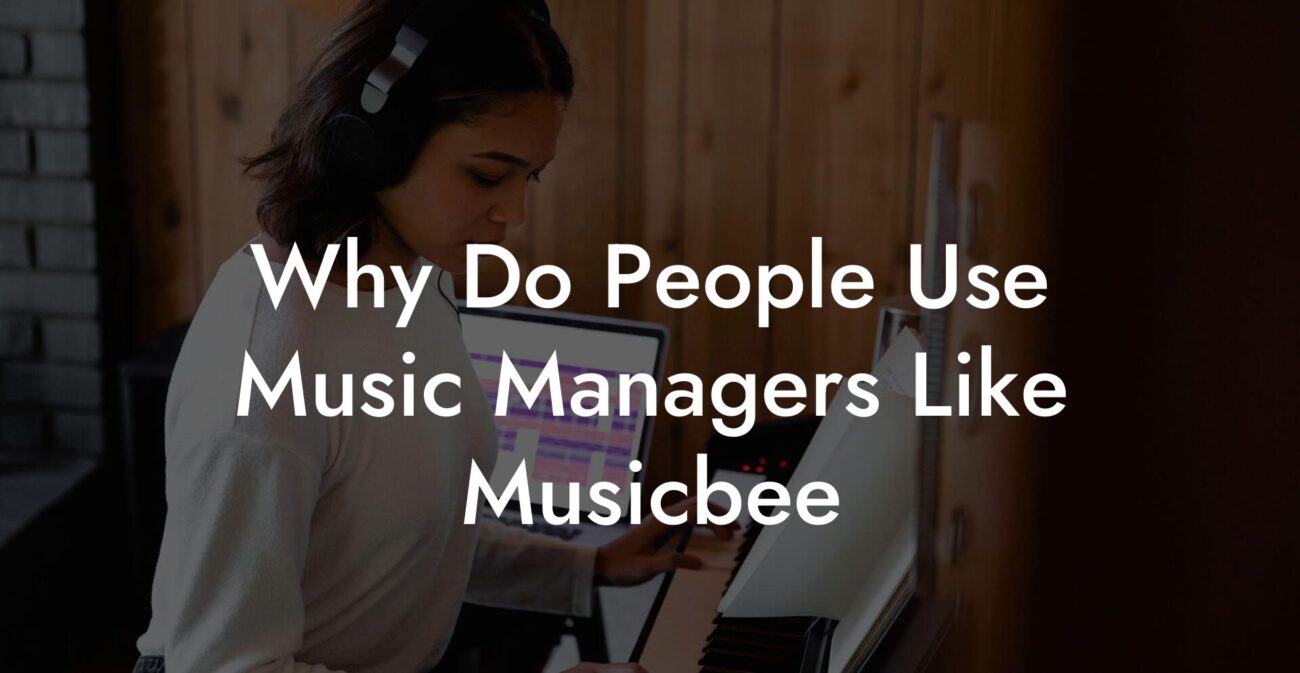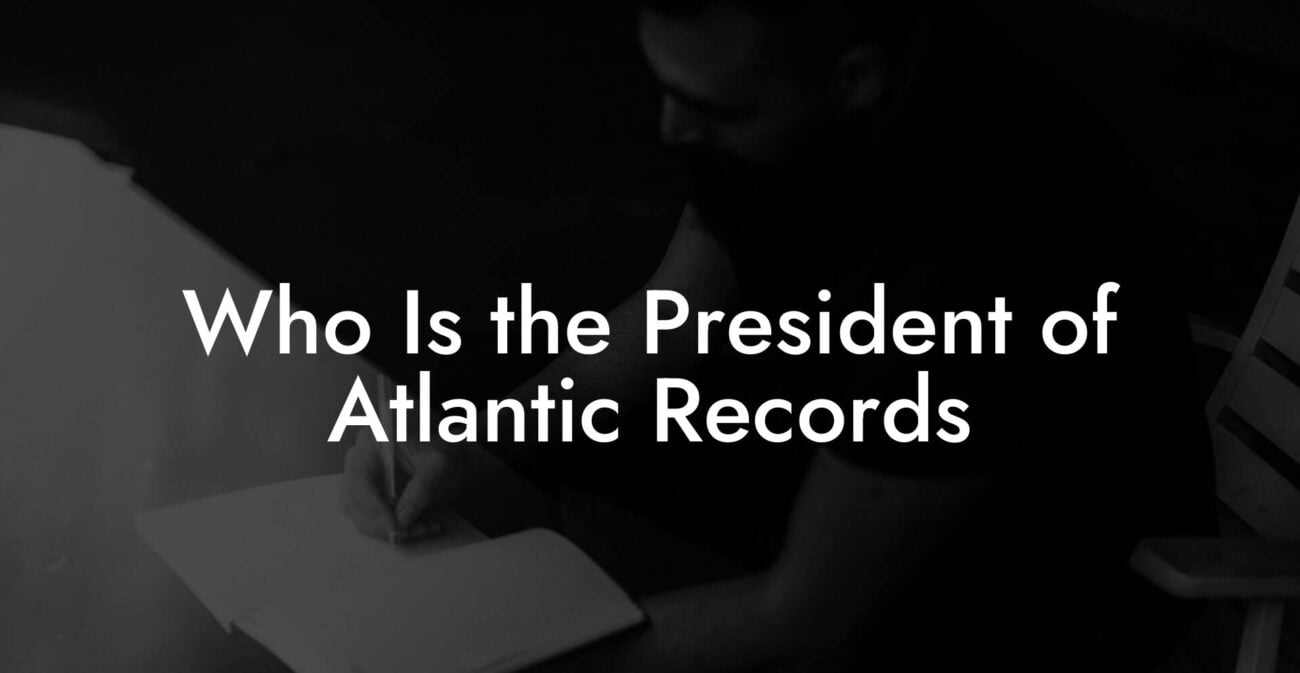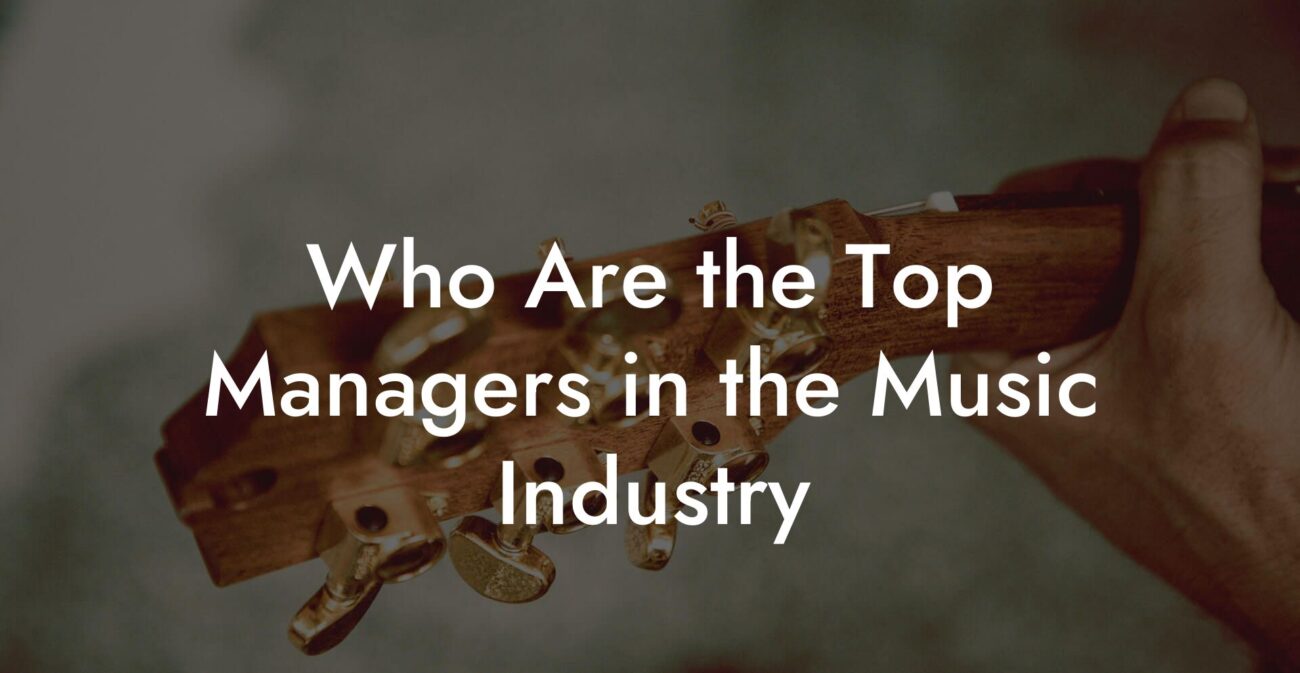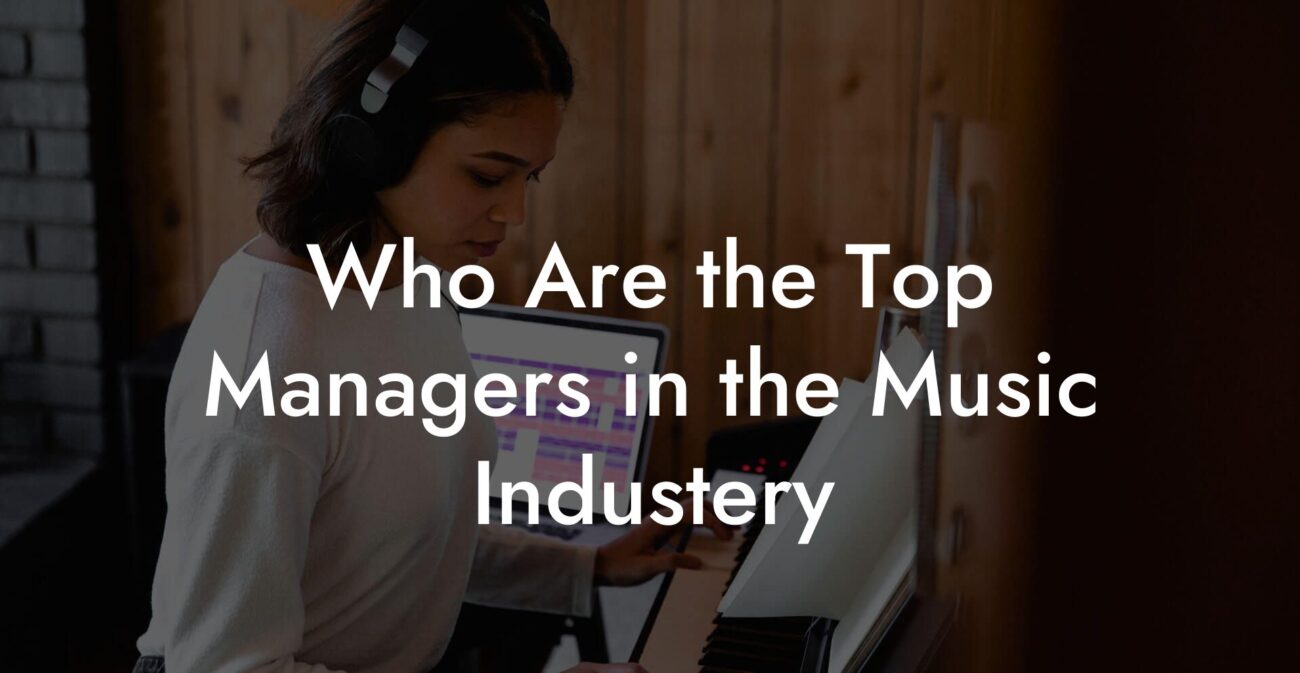If you’ve ever trusted a so-called “music manager” only to later realize they were more interested in their commission than your next hit single, you’re not alone. Welcome to the wild, sometimes downright shady world of music management where promises are as common as autotune—and just as often off-key. In this guide, we’ll explore why managers in the music industry might just screw you over, diving into the dark corners of contract clauses, hidden fees, and the age-old tales of artists who trusted the wrong people. Whether you’re a budding songwriter, an aspiring musician, or just someone who loves geeking out over the intricacies of the music biz, get ready for a humorous, no-holds-barred look at how to navigate a field where it pays to know who’s really calling the shots.
Looking to write your next song? Transform your creative ideas into songs that people will love, and skyrocket your music career with Lyric Assistant. The perfect songwriting assistant. Find out more →
Quick Links to Useful Sections
- What’s the Real Deal With Music Managers?
- The Dark Side: Tales of Deception and Broken Promises
- How Music Managers Make Money at Your Expense
- Case Studies: When Music Managers Didn't Have Your Back
- The Over-Promised and Under-Delivered Deal
- The One-Sided 360 Deal
- The Red Tape Nightmare
- How to Protect Yourself as an Artist
- Do Your Homework
- Get a Second Opinion
- Empower Yourself with Digital Tools
- Technology and Community: Tools for Independent Success
- Resources and Community Support: Your Next Steps
- Educate Yourself
- Network with Other Artists
- Use Digital Tools to Your Advantage
- Consult with Professionals
- Stay True to Your Vision
- Breaking the Cycle: Strategies for Long-Term Success
- Maintain Autonomy Over Your Work
- Keep Your Options Open
- Leverage Data and Analytics
- Invest in Yourself
- FAQ: Your Burning Questions Answered
- Your Journey to Musicianship and Autonomy
What’s the Real Deal With Music Managers?
In the glittery world of music, managers are often portrayed as your trusty sidekick—the savvy, well-connected expert who’ll catapult your music career to stardom. But behind the flashy veneer lies a more murky reality. Often, these self-proclaimed experts are juggling multiple clients, grasping for the next commission, and sometimes—and we’re not kidding—screwing over the very artists they were meant to protect.
So, who exactly are these managers? In theory, they’re supposed to handle your bookings, negotiate contracts, and steer you away from bad deals. In practice? They might be more interested in signing you up for a lifetime of earnings in their bank account than in making sure you land that dream record deal. Keywords like “music manager deception,” “music management pitfalls,” and even “music industry scams” often pop up in conversations among artists who feel shortchanged after entrusting their careers to these gatekeepers.
Let’s be real: every generation has its hustlers, but when it comes to music management, the stakes are high. These individuals hold a lot of power over your career—and that power can be abused in ways you might not even see coming.
The Dark Side: Tales of Deception and Broken Promises
If Hollywood had a “most wanted” list, a few infamous music managers would undoubtedly earn a spot on it. From the shady backroom deals to the overly optimistic promises of multi-platinum streams, the dark tales of music industry management offer plenty of cautionary lore. Many artists have found themselves caught up in contracts that seem too good to be true—and then, shockingly, realized they were.
Consider the countless horror stories of musicians trapped in deals with outrageous commission structures. Instead of celebrating their creative breakthroughs, some artists are left fighting legal battles over rights they once believed were rightfully theirs. These narratives underscore the old adage: if it sounds too good to be true, it probably is.
One rampant issue is the ‘exclusive management’ trap where once you sign on, it practically means you’re giving up creative control for years on end. You sign your heart (and your future royalties) away, only to end up with a manager who might prioritize their interests over nurturing your talent. The moral of these tales? Always be cautious, ask tough questions, and never, ever sign anything in a rush.
How Music Managers Make Money at Your Expense
Ever wondered how some managers seem to have more money than the artists they represent? The answer lies in the fine print of those oh-so-dense contracts. Many managers work on commission, but the devil is in the details. Commissions can range between 10% to 20%—and that’s just the beginning. Hidden fees, unexplained deductions, and ambiguous language can gradually erode the revenue that should be fueling your creative journey.
When you delve into the world of contract negotiations, you’ll quickly notice that most agreements are written in a language that would send even the most seasoned lawyer running for a dictionary. Often, these contracts aren’t revisited for years, giving managers ample time to adjust terms and hike up fees secretly. For any independent artist, these sneaky practices are not just annoying—they can be career-stalling.
The trick is understanding the revenue share system, the concept of “360 deals” (where managers take a slice of everything—from touring to merchandising), and contract clauses that allow managers to potentially lock you in for life. Familiarizing yourself with these industry-specific terms not only helps you negotiate better deals but also prepares you to challenge any practice that seems designed to leave you penniless while they celebrate your fleeting success.
If you’re serious about becoming a musician and writing killer lyrics that resonate with a generation raised on instant gratification, it’s crucial to know how every dollar you earn is allocated. Researching “music manager fees explained” or “understanding music contracts” can provide a wealth of information that helps you critically assess any agreement laid before you.
Case Studies: When Music Managers Didn’t Have Your Back
Let’s get personal with a few real-life scenarios that illustrate how things can go horribly wrong when managing your career falls into the wrong hands. These aren’t just cautionary tales—they’re blueprints for what to avoid.
The Over-Promised and Under-Delivered Deal
Picture this: You’re an up-and-coming songwriter with killer tracks, and a music manager approaches with promises of lightning-fast stardom. With glowing testimonials and slick marketing pitch, you sign on the dotted line. Fast forward a year, and your career hasn’t taken off—not because your music isn’t good, but because the manager’s connections turned out to be nothing more than smoke and mirrors. Instead of receiving support, you’re left with a contract that drains your earnings from every gig and streaming revenue.
The One-Sided 360 Deal
Another classic scenario is the infamous 360 deal. In this arrangement, the manager not only takes a cut from your record sales but also from your live performances, merchandise, sponsorships, and even side hustles like songwriting for other artists. Initially, it sounds like a brilliant idea—a single entity handling every aspect of your career. However, as time rolls on, you discover that you’re immune to any financial gain because every penny you earn is diverted into the manager’s portfolio. The result? A lifetime of labor without the corresponding rewards.
The Red Tape Nightmare
In some cases, managers have entangled artists in an unending swirl of legal jargon and red tape. A simple request for creative freedom becomes a labyrinth of negotiations and counter-offers, leaving the artist frustrated and feeling exploited. Rather than focusing on creating groundbreaking music, you’re forced to spend precious time and energy untangling contractual knots that were never part of the creative process.
These case studies are not isolated incidents. They reflect systemic issues within the music industry where power imbalances allow managers to prioritize their profit margins over the artistic freedom and financial well-being of the very musicians they’re supposed to support.
How to Protect Yourself as an Artist
Now that we’ve funneled through the murky underbelly of music management, let’s talk about the lifebuoy you need to grab to stay afloat in these turbulent waters. Protecting yourself as an artist means arming yourself with knowledge and seeking reliable professional support. The following plays are your defensive maneuvers to ensure that you can focus on writing hit songs instead of fighting legal battles.
Do Your Homework
Before you sign on any dotted lines, immerse yourself in the basics of music contracts. There are plenty of resources online—including blogs, forums, and even courses—designed to educate independent artists on the intricacies of the music business. Learn the ins and outs of industry jargon like “royalty splits,” “sync licensing,” and “advances.”
If you stumble upon a contract that appears to be loaded with legal verbiage (and, spoiler alert, it probably is), don’t hesitate to seek legal advice. Hiring an entertainment lawyer or a consultant with experience in music contracts is an investment in your future.
Get a Second Opinion
Thinking a certain manager could be your golden ticket to success? Great—but always run your contract by someone you trust. This could be another industry professional, a mentor who’s been through the grind, or even an experienced fellow artist. A fresh set of eyes can often spot the red flags that might have eluded your initial excitement.
Remember, negotiation is part of the game. Don’t be afraid to push back on clauses that seem unfair or excessively one-sided. A reputable manager will understand the value of a collaborative, transparent partnership, not a parasitic arrangement that only benefits one party.
Empower Yourself with Digital Tools
In today’s tech-savvy era, you have more tools than ever before to take control of your music career. Platforms like Lyric Assistant not only streamline the songwriting process but also give you a leg up on managing your brand independently. By using such digital solutions, you can direct your energy toward creation rather than constant administrative headaches and disputes over contract details.
Empowerment comes from understanding that while managers can be useful allies, they are not your lifeline. Arm yourself with knowledge, harness the power of community, and leverage technology so you can remain the captain of your own creative ship.
Technology and Community: Tools for Independent Success
The digital revolution has disrupted virtually every industry, and the music biz is no exception. With the rise of streaming platforms, social media marketing, and innovative songwriting tools like Lyric Assistant, independent artists are carving their own path to success. Gone are the days when you needed a big-name manager to break into the industry.
Nowadays, you can manage your own brand, release your own music, and build a dedicated fan base—all with a few clicks of a mouse or taps on the screen. Social media platforms such as Instagram, TikTok, and YouTube are teeming with examples of artists who went viral without management backing. These success stories are proof that DIY (do-it-yourself) can be just as effective, if not more, than traditional pathways.
Furthermore, online communities dedicated to independent music creation offer peer-to-peer support, advice, and even opportunities to collaborate. Whether you’re looking for feedback on your latest track or hoping to connect with fellow songwriters for a collaborative project, these networks can provide the resources and moral support you need to bypass the conventional—and sometimes predatory—routes.
Remember, when you control your creative destiny, every decision is yours to make. Utilize online resources, invest in digital tools, and foster a community that values clear communication and mutual growth. This approach not only shields you from the pitfalls of exploitative management but also paves the way for a more sustainable, fulfilling music career.
Resources and Community Support: Your Next Steps
So, you’ve taken in the gritty reality of the music management world and now you’re ready to protect your creative journey. What are the next steps? Here’s a roadmap to help you navigate this challenging industry landscape while taking advantage of modern innovations and independent networks:
Educate Yourself
Start by diving into resources that break down the complexities of music contracts and management practices. Websites, podcasts, and YouTube channels run by experienced musicians and industry veterans can offer invaluable insights. The more informed you are, the better prepared you’ll be to negotiate fair agreements.
Network with Other Artists
Cultivate relationships with fellow musicians. Often, the experiences of others in your community can provide a clearer perspective on what to accept—and what to refuse. Join online forums, attend local music events, or become active on social media platforms where independent artists share tips, warnings, and success stories.
Use Digital Tools to Your Advantage
Tools like Lyric Assistant not only provide creative inspiration when you’re facing writer’s block but also help you maintain control over your creative outputs. The independence afforded by technology means you can bypass traditional management routes, focus on what you do best, and retain full rights over your work.
Consult with Professionals
Whether it’s an entertainment lawyer, a seasoned music consultant, or a mentor, getting professional advice tailored to your unique needs is key. They can help you evaluate a contract, manage your finances, and plan for both short-term projects and long-term career stability.
Stay True to Your Vision
The most valuable asset you have is your creative voice. No contractual clause or management gimmick should ever come between you and your artistic vision. Trust in your ability to write lyrics, compose music, and build a brand that resonates with authenticity.
As you progress through your music career, remember that community support and self-empowerment are your best defenses against the pitfalls of exploitative management. Keep learning, keep networking, and use every tool at your disposal to stay in control of your narrative.
Breaking the Cycle: Strategies for Long-Term Success
Creating a long-lasting, authentic music career means outsmarting the pitfalls laid out by those who have made it their mission to bleed a little extra off your creativity. Here are some strategic tips to ensure you’re not caught in a cycle of endless exploitation:
Maintain Autonomy Over Your Work
One of the most common mistakes independent artists make is handing over too much control. Whether it’s management duties or creative decisions, retaining as much autonomy as possible gives you the freedom to adapt, evolve, and ultimately, make decisions that serve your best interest. Think of it like holding the reins to a wild stallion—only you can decide which direction to gallop.
Keep Your Options Open
If a manager is key to securing certain gigs or getting your music out there, ensure that your contract provides an exit strategy. Avoid long-term commitments that could lock you in even when your creative vision changes. This means negotiating for clauses that allow for periodic reviews and endorsements of performance.
Leverage Data and Analytics
In this digital age, data is your best friend. Use analytics tools available on music streaming platforms and social media to understand what’s working for you and what isn’t. Having hard data at your fingertips not only helps you make informed creative decisions but also strengthens your bargaining power when negotiating with industry professionals.
Invest in Yourself
Consider every expense—whether it’s time spent refining your craft, investing in quality recording equipment, or subscribing to a digital service like Lyric Assistant—as a seed that will eventually bloom into long-term success. The money and hours you invest in your personal development and creative output will pay off, regardless of how slick your manager’s sales pitch might be.
By taking a proactive approach, you transform potential vulnerabilities into strengths. Staying informed, flexible, and hands-on in managing your career creates a resilient foundation that’s less susceptible to exploitation—and way more fun, too.
FAQ: Your Burning Questions Answered
We know you’ve got questions swirling around like the bass in a club beat. Here are some of the most frequently asked questions to help clear up any doubts and give you a head start on protecting your career.
1. Why do music managers sometimes screw over their artists?
Music managers often operate on commission and may prioritize their own profit margins over the artist’s best interests. Vague contract terms, 360 deals, and hidden fees can lead to situations where the manager benefits disproportionately compared to the artist.
2. What should I look for in a contract?
Look out for clear details on commission rates, contract length, termination clauses, and any non-compete agreements. If any aspect seems overly favorable to the manager or confusing, it’s a red flag that professional legal advice might be needed.
3. How can I avoid being trapped in a 360 deal?
Being informed is key. Understand what a 360 deal entails and negotiate for limits on commission from non-musical ventures like merchandising or live performances. Seek counsel from experienced industry professionals before signing.
4. What role does digital technology play in bypassing traditional management?
The digital era empowers artists to produce, distribute, and promote their music independently. Tools like Lyric Assistant streamline your songwriting process and help cultivate a direct connection with fans, reducing your dependency on managers.
5. Can online communities really help me navigate the music industry?
Absolutely. Networking with fellow artists, joining forums, and tapping into social media groups provide first-hand insights and support. These communities are treasure troves for learning about industry pitfalls and best practices.
6. What if I’ve already signed a bad contract?
If you suspect your contract is unfair, consult an entertainment lawyer or a trusted mentor immediately. Sometimes renegotiating or even exiting a contract is possible once you understand your rights.
7. How important is it to educate myself about music business practices?
It’s crucial. The more information you have about standard practices, royalty splits, and management fees, the better equipped you are to protect your career and your creative vision.
Your Journey to Musicianship and Autonomy
In the final analysis, navigating the music industry is a bit like writing a great lyric: it takes time, introspection, and sometimes a willingness to challenge the status quo. Managers who promise the moon might just leave you with moon dust if you don’t stay vigilant and informed. Instead of getting caught in the management quicksand, take charge of your creative destiny. Arm yourself with knowledge, surround yourself with a supportive community, and use every tool at your disposal—from digital songwriting assistants to social media—to foster an independent career.
Your journey to becoming a successful musician isn’t defined by the promises of slick-suited managers; it’s defined by the authenticity, effort, and creativity you infuse into every lyric and every beat you produce. Acknowledge the pitfalls, learn from others’ mistakes, and keep your focus on what truly matters: your art, your brilliance, and your unique voice in an industry that sometimes prefers to profit off your dreams rather than fuel them.
Whether you’re just starting out or you’re already knee-deep in the music scene, remember that autonomy and empowerment go hand in hand. By taking control of your career choices and refusing to settle for less than you deserve, you’re paving a road that leads not just to success, but to fulfillment as an artist.
So, as you embark on this audacious journey, let your passion for songwriting and music be your guide. Embrace the chaos, learn to dodge the pitfalls, and never let anyone dim the light of your creative fire. Here’s to you—writing your own story in a world that’s too busy trying to write someone else’s.

